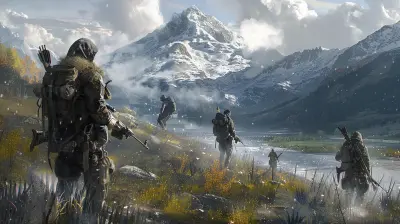Story-Driven MMOs: Are We Seeing a New Era of Narrative Focus?
20 June 2025
If you've spent any time grinding in an MMO, you probably know the drill: kill 10 rats, fetch that item, run back, rinse, repeat. But something curious has been happening in the world of MMORPGs — narrative is beginning to take center stage.
Yep, it’s not just about loot, levels, and flashy spells anymore. Developers are finally realizing that storytelling — compelling, emotional, thought-provoking storytelling — can actually be the hook that keeps players logged in longer than any loot drop ever could.
So, are we on the brink of a narrative revolution in MMOs? Let’s dive deep into the shift that’s unfolding right before our eyes.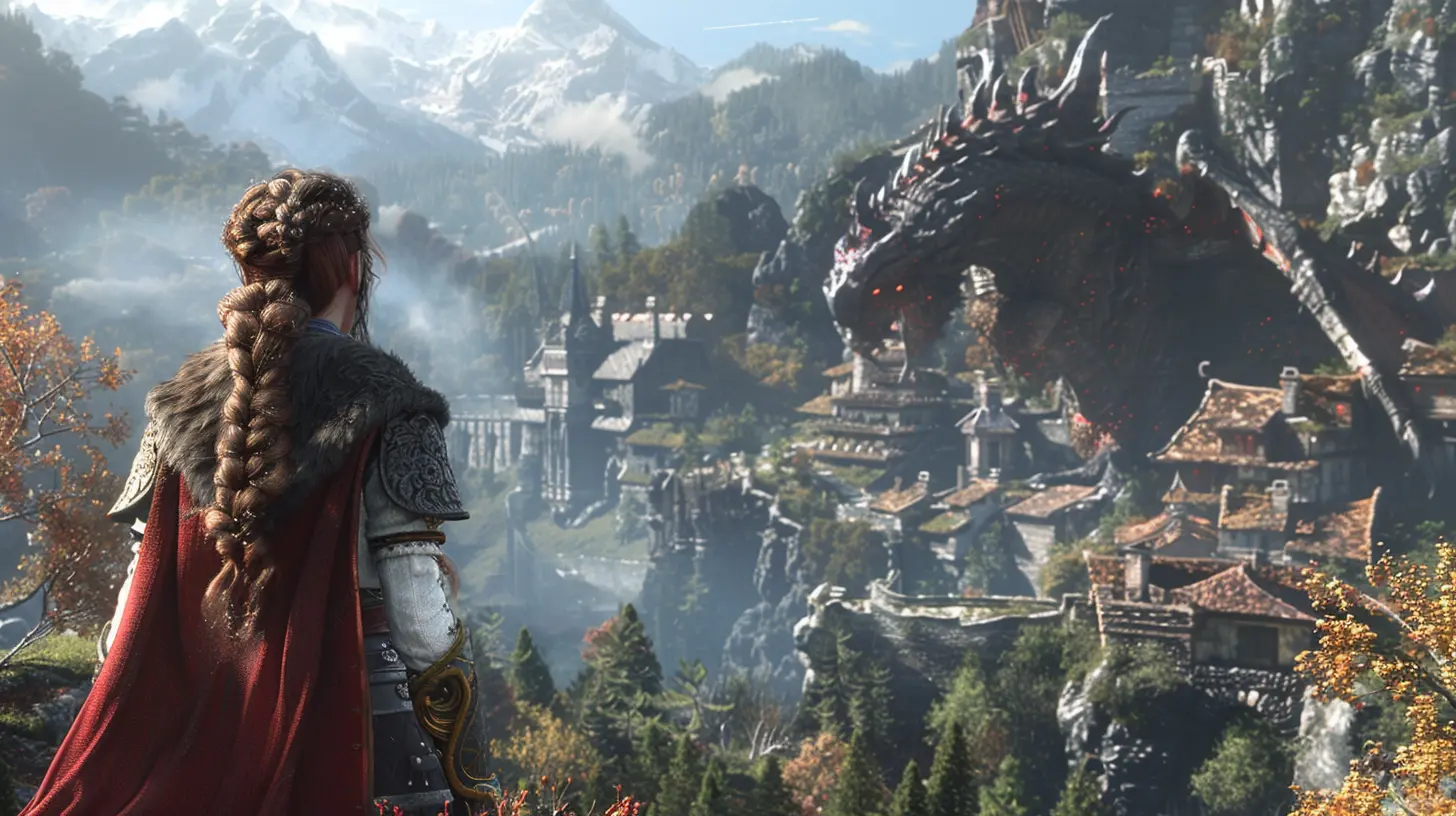
The MMO Landscape: Then and Now
To really understand the shift, we need to take a step back.In the golden age of MMOs — the early 2000s — gameplay was king. Games like EverQuest, RuneScape, and, of course, World of Warcraft sparked addiction-worthy loops. But let’s be honest: story wasn’t really the main event. Sure, there were epic fantasy backdrops, some ominous lore, maybe even a forgotten prophecy or two, but most people skipped quest text and just followed the big yellow exclamation marks.
Fast forward to today, and the game has changed. Literally.
Games like Final Fantasy XIV, Star Wars: The Old Republic, and Guild Wars 2 have started placing real emphasis on weaving deep, engaging narratives into the fabric of their worlds. Players aren’t just adventurers; they’re protagonists. Every decision you make, every alliance you forge, every enemy you fight — it’s all part of a bigger, meaningful story.
It feels a lot more like role-playing and a lot less like checklist-clicking.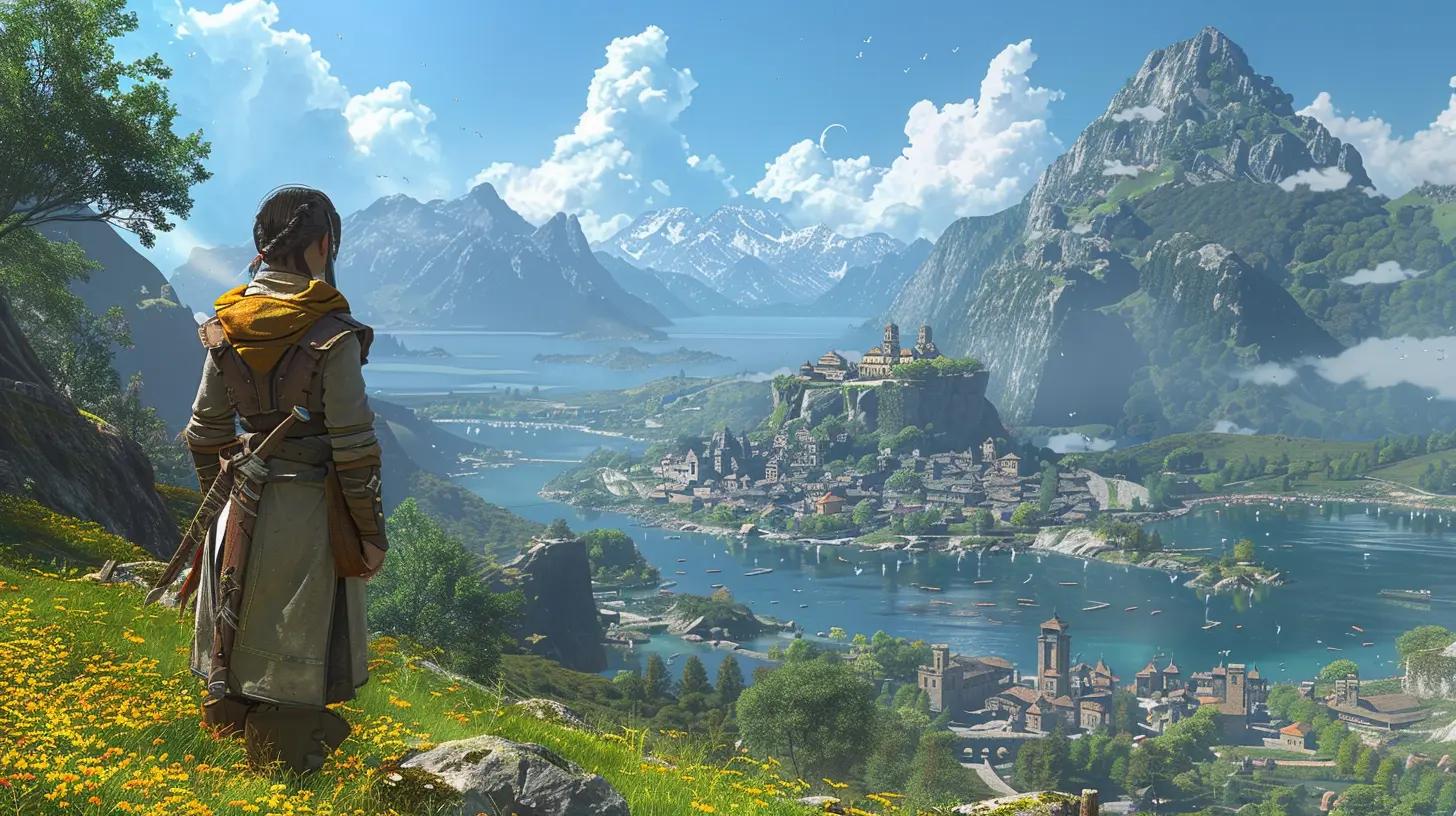
Why Story Suddenly Matters So Much
So, what's caused this narrative glow-up? A few things, actually.1. Players Have Evolved
Let’s face it — we’re not the same gamers we were 15 years ago. We’ve matured. And so have our gaming tastes. We’re craving experiences that move us, stories that stick, and worlds that feel alive. The modern player wants more than just achievements — they want emotions, twists, surprises, and stakes.Think about it: how long can you keep killing boars for exp before you start questioning your virtual existence?
2. The Influence of Single-Player RPGs
Games like The Witcher 3, Mass Effect, and Elden Ring (yes, even with its obscure storytelling) have raised the bar. These immersive, carefully crafted narrative experiences have shown that story can be just as addictive as gameplay — sometimes even more so.MMOs took note. If players are willing to sink hundreds of hours into a story-driven single-player game, why not bring that magic into a multiplayer space?
3. Accessibility and Technology
We’re in an era where cinematic cutscenes, voice acting, and dynamic storytelling are no longer luxuries — they’re expectations. Modern game engines and streaming tech allow for more fluid, seamless integration of narrative within gameplay.Also, let’s not forget the rise of episodic content, live service narratives, and seasons. Games can now evolve their stories over time, keep players engaged, and create long-term emotional investment. That’s powerful stuff.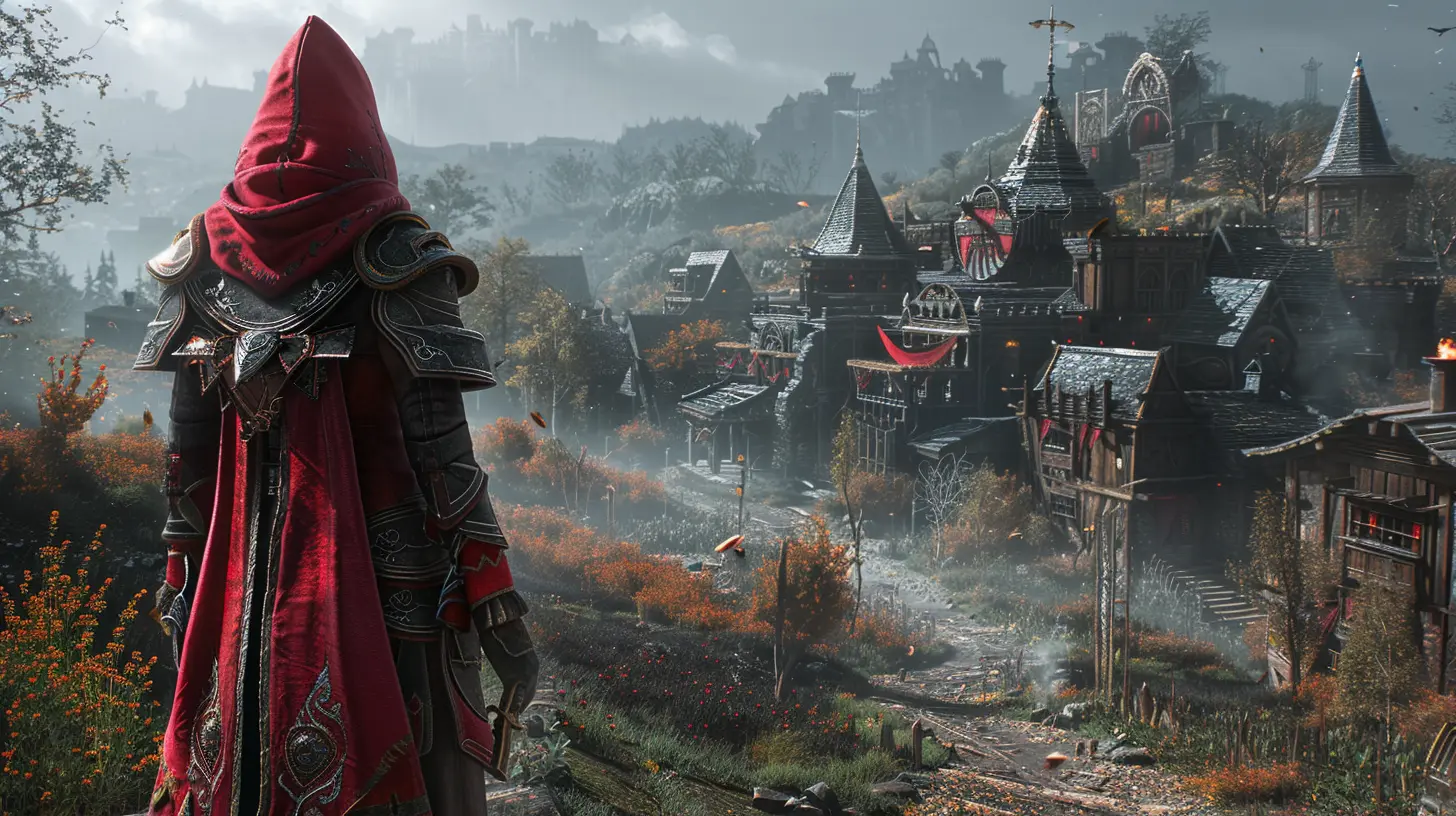
Examples of Story-Driven MMOs Doing it Right
Let’s take a look at the games that are showing us how it’s done.Final Fantasy XIV: The Poster Child for MMO Storytelling
Seriously, if there’s one game that proves story matters in MMOs, it’s FFXIV.The critically acclaimed (yes, we’ve all seen the meme) MMORPG took a failing game, reinvented it from the ground up, and gave us A Realm Reborn. Since then, it’s only climbed higher with expansions like Heavensward, Shadowbringers, and Endwalker. Each of these chapters brought gripping plots, complex characters, emotional payoffs, and — best of all — genuine consequences.
You don’t just play FFXIV. You live it.
Star Wars: The Old Republic
Another early attempt at merging traditional RPG storytelling with MMO gameplay, SWTOR still stands out for its fully voiced characters, moral choices, and branching storylines.You’re not just another Jedi or Sith. You’re the Jedi or Sith. The hero. The villain. The wildcard. BioWare's narrative DNA is all over this game, and it shows — even years after launch.
The Elder Scrolls Online
ESO had a rough start, but it’s quietly become one of the most content-rich and story-focused MMOs around. With deep lore, questlines that feel like interactive novels, and constant updates that expand the universe, it’s got narrative depth that rivals even the beloved single-player TES entries.Guild Wars 2
While its approach to story is more flexible and player-choice driven, Guild Wars 2 has demonstrated how episodic storytelling can work in the MMO space. The “Living World” updates constantly introduce fresh narrative arcs, character development, and evolving world states.And hey, that’s a pretty smart way to keep players engaged without dropping a massive expansion every year.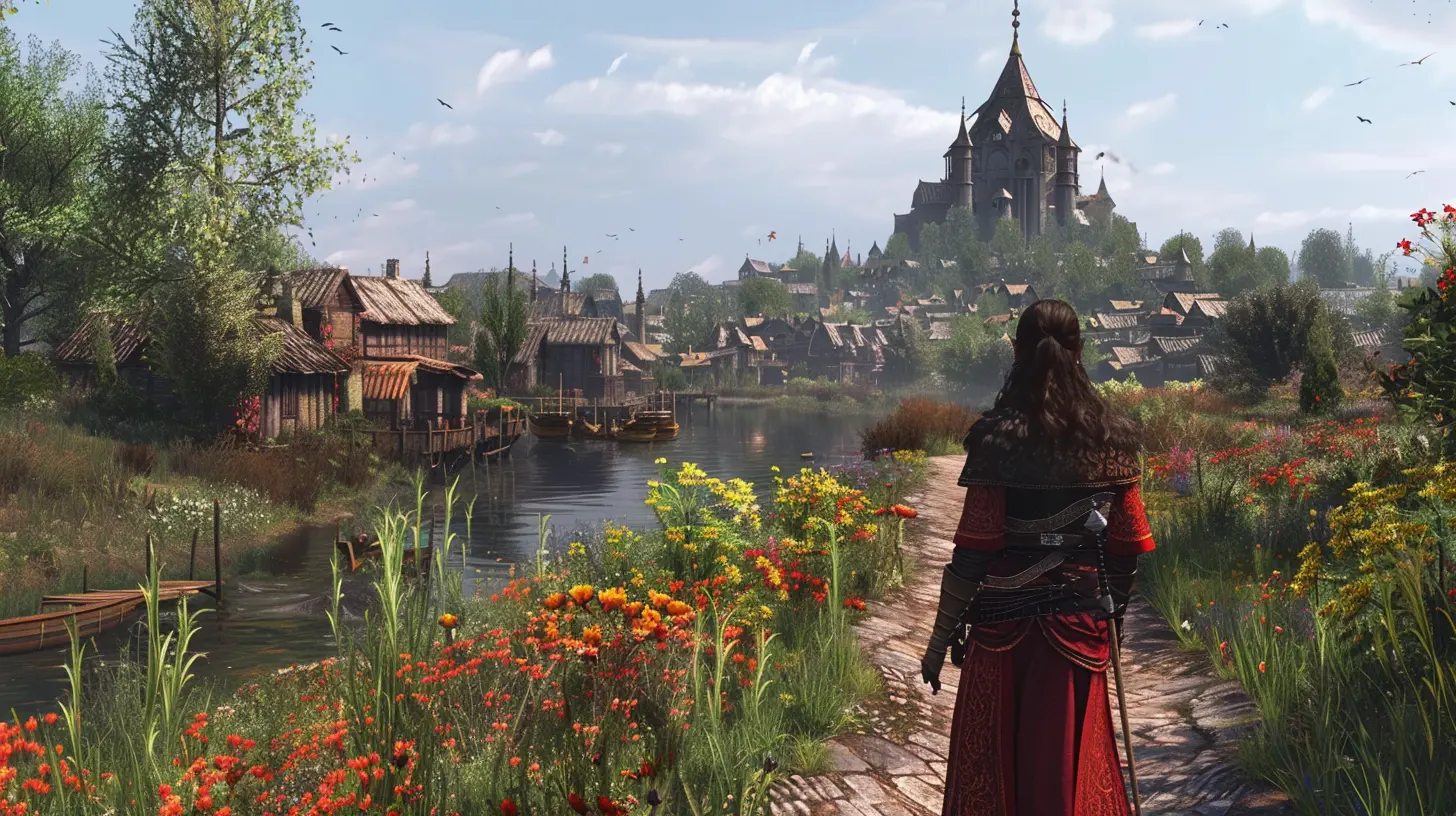
The Rise of Player Agency and Choice in MMO Storytelling
One of the most exciting trends in this narrative renaissance? Player choice.Instead of being passengers in someone else’s story, players are now driving the car. And sometimes, they’re even writing the map. Games are starting to offer branching narratives, unique outcomes based on decisions, and complex moral dilemmas.
Sure, choice comes with challenges in an MMO setting (how do you justify different outcomes when millions are playing the same world?), but developers are getting creative. Phasing, instancing, personal storylines — these are just a few tools devs are using to bring agency into shared worlds.
And let’s be real: nothing makes a quest hit harder than knowing your decisions actually shaped the outcome.
Community-Driven Storytelling: A New Frontier?
Another fascinating shift? The rise of emergent storytelling.While devs are focusing more on scripted narratives, players themselves are also creating their own stories — sometimes more memorable than anything in the main quest. Role-playing communities, in-game events, player-written lore, and sandbox narratives are thriving.
Games like EVE Online have practically built their brand on this. Corporations rise and fall, betrayals happen, wars start — all because of player action. It’s like living in your own Game of Thrones saga.
So, are MMOs evolving into collaborative storytelling platforms? It sure looks like it.
The Challenges of Making Narrative Work in MMOs
Let’s not pretend this is all sunshine and dramatic plot twists.Crafting a deep, engaging story in an MMO is much harder than in a single-player game. Why? A few reasons:
- Scale: You’re writing for millions of players. That means you need broad appeal without being bland.
- Pacing: Players move at different speeds. Some want to race through the story, others take years.
- Consistency vs. Player Choice: Balancing freedom and narrative cohesion is tricky.
- Technical Limitations: Voice acting costs money. Instancing takes resources. Not every dev team can pull off cinematic story arcs.
Even so, the fact that studios are investing time and effort into solving these problems tells you how important story has become.
The Future of Narrative in MMOs
So, where are we heading?It’s likely we’ll see more hybrid MMOs — games that blur the line between single-player storytelling and multiplayer interaction. Think deeper character narratives, more impactful choices, and stories that evolve with the player community.
Keep an eye on upcoming titles like Ashes of Creation, Blue Protocol, and even Palia, which are all experimenting with different storytelling techniques. Whether it's through procedurally generated story threads, rich lore integration, or player-driven politics, things are heating up.
And honestly? That’s freaking awesome.
Conclusion: A New Era Is Already Here
Here’s the thing — we’re not just asking the question anymore. We’re already living the answer.MMORPGs are growing up. They’re beginning to understand that story can be just as addicting as combat, just as rewarding as loot, and just as integral as any raid boss. Narratives are no longer background noise. They’re the beating heart that gives the world life.
And if you ask me, that’s something worth logging in for.
all images in this post were generated using AI tools
Category:
Massively Multiplayer OnlineAuthor:

Tina Fisher
Discussion
rate this article
2 comments
Nix Lawson
This article adeptly explores the shift towards narrative-rich experiences in MMOs, highlighting how immersive storytelling enhances player engagement. As developers prioritize character-driven plots and dynamic worlds, we may indeed be entering a transformative era where narrative depth becomes as essential as gameplay mechanics.
October 4, 2025 at 3:35 PM

Tina Fisher
Thank you for your insightful comment! I agree that the emphasis on narrative depth is reshaping the MMO landscape, making storytelling a crucial component of player engagement.
Drew Morris
Absolutely! As MMOs embrace richer narratives and character development, we're witnessing a transformative phase in gaming. Players are increasingly drawn to immersive storytelling, which not only enhances engagement but also fosters deeper emotional connections. Exciting times ahead for narrative-focused gameplay!
June 29, 2025 at 3:55 AM

Tina Fisher
Thank you for your insightful comment! I completely agree—enhanced narratives and character depth are indeed reshaping the MMO landscape and enriching player experiences. Exciting times indeed!

